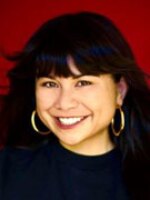Barry Pollard still remembers how helpless he felt watching his stepdaughter gasp for air in the midst of an asthma attack. It was a Saturday, and the longtime Valencia Park resident rushed to his local clinic only to find it was closed and there were no nearby urgent care centers.
“I was thoroughly upset that we didn’t have it,” said Pollard. “Especially with all the medical entities that are in here.”
That was four years ago. Ever since then, he’s been trying to get more urgent care centers and expanded clinic hours in Southeast San Diego. To do it, Pollard is using his platform as the CEO of the Urban Collaborative Project, a grassroots community group working to end disparities.
The lack of investment in Southeast San Diego, a historically low-income area, is decades-old and it’s caused people to expect less than they deserve, Pollard said.
RELATED: Historical Redlining Contributed To Health Disparities, UCSD Public Health Dean Says
“People don’t even know they deserve an urgent care center,” he said. “They are so used to driving out of this community that it’s not an issue. Until you are a single mom jumping on the bus or trolley to take your kid out to one of these outer-lying health facilities.”
Pollard, who had insurance at the time, ended up taking his stepdaughter to an emergency room. But, he said, not everyone has access to a car or can afford emergency care, which is often more expensive.
Dr. Suzanne Afflalo, a retired Kaiser Family Care doctor, is working with Pollard on this issue. The need for urgent care is particularly acute in places like Encanto and Paradise Hills, which are predominantly Black and Latino, she said.
“There is a void,” she said. “We talk about food deserts, there's a health care desert in this community.”
The COVID-19 pandemic exacerbated existing health inequities and laid bare how a lack of health care options can make communities more vulnerable in times of crisis.
“By not having access to health care and good health care in the community that you live in, your chronic diseases, your diabetes, your hypertension, your heart disease, just continues to get worse,” she said.
RELATED: Post-Pandemic Public Health Funding: 'Now Is Absolutely The Opportunity'
Collaboration is key to expanding care in Southeast San Diego, Pollard said. He wants to see different institutions like San Ysidro Health and UC San Diego work together and shoulder the cost together to convert existing clinics into urgent cares.
“Knowing that it's not a money maker, I didn't want to put any organization under any undue pressure,” he said.
Pollard understands there's a financial cost associated with expanding care, but he thinks it's worth it to better serve his community and he wants to convince others it's worth it too. He's been reaching out to providers for the past four years without much success.
Recently, Pollard and other members of the Urban Collaborative Project scheduled a meeting with San Ysidro Health, which runs two clinics in Encanto.
One of the clinics is open on Saturday, but doesn't provide urgent care.
San Ysidro Health took a financial hit during the pandemic and even had to furlough some workers, but Kevin Mattson, CEO of San Ysidro Health, said they are beginning to stabilize.
Mattson's worried about the cost of expanding urgent care centers, but is open to exploring what can be done and possibly even allocating some funding in the budget.
“We're happy to collaborate with the Urban Collaborative and help figure out how we can solve this issue in the community,” said Mattson. “We are happy to have that discussion.”
Pollard is cautiously optimistic, but admits he's become cynical, especially as he begins to hear equity become more of a buzzword that doesn't always lead to action. For him, expanding clinic hours through urgent care is an opportunity for real equity, not just talk.
“Everybody is jumping on the equity bandwagon,” he said. “Put up or shut up. This is health disparity 101.”







